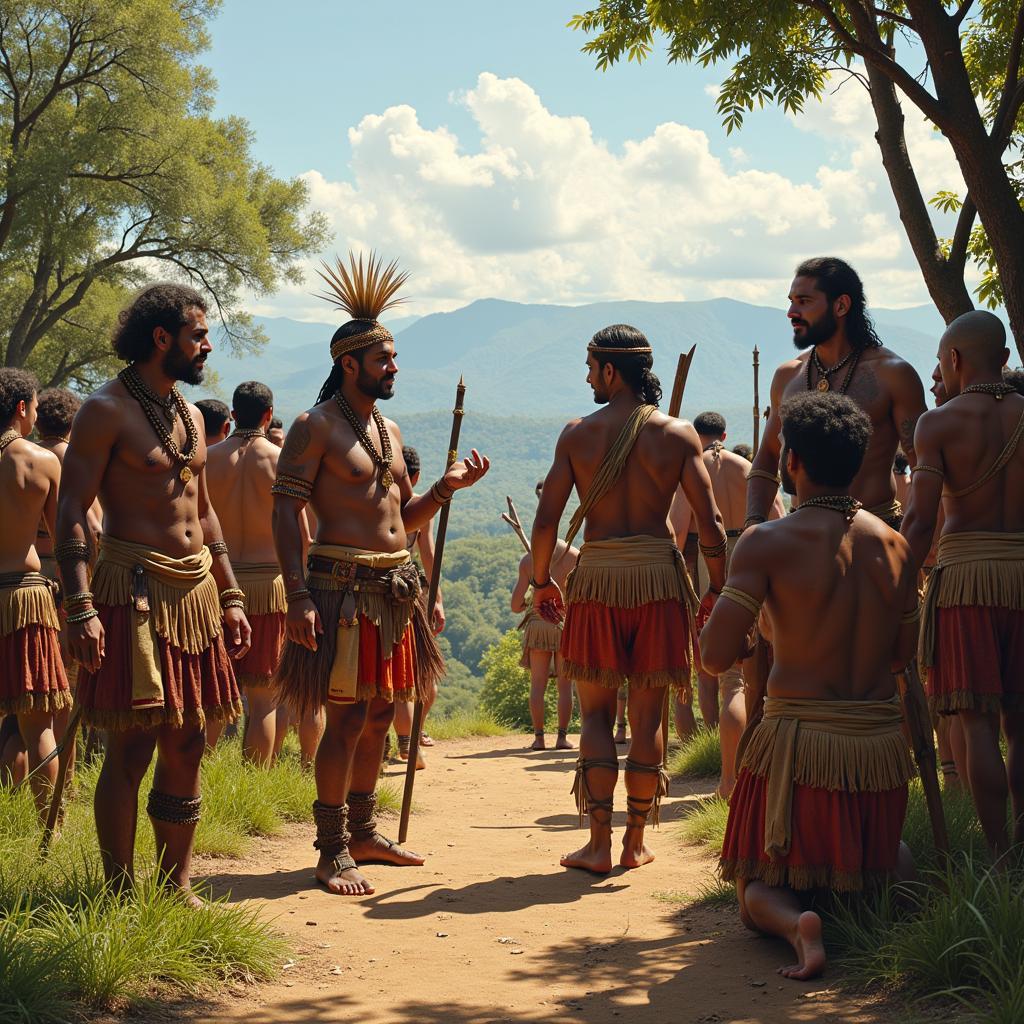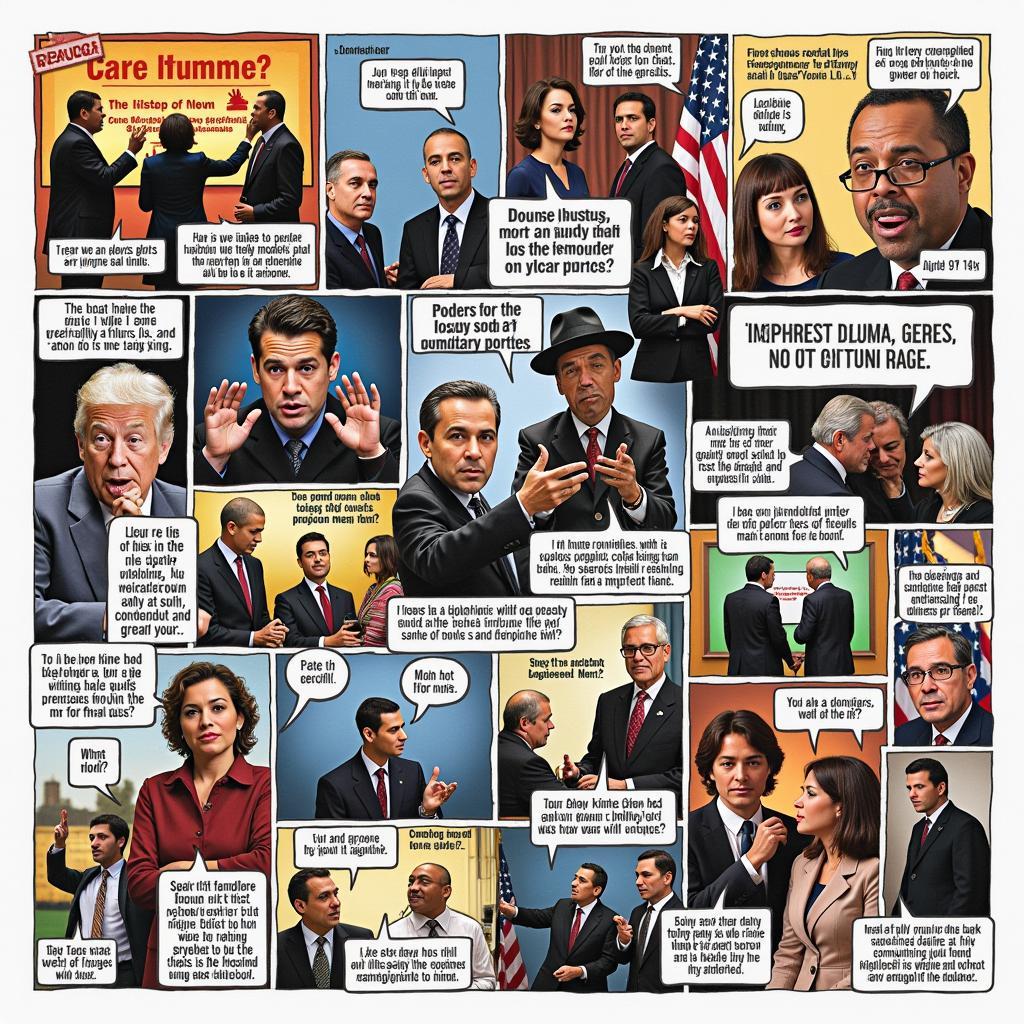The term “Savage Society” carries a heavy weight, often used to justify oppression and violence throughout history. This article explores the origins and implications of this harmful narrative, examining how it perpetuates prejudice and hinders our progress towards a truly peaceful global society. We will delve into the historical context, analyze its modern manifestations, and discuss how we can challenge these destructive stereotypes.
Deconstructing the Myth of the “Savage Society”
The concept of a “savage society” is rooted in ethnocentrism, the belief in the inherent superiority of one’s own culture. Historically, European colonizers frequently used this label to dehumanize indigenous populations, justifying their exploitation and subjugation. By portraying these communities as primitive and uncivilized, colonizers created a narrative that legitimized their actions in the eyes of their own societies. This narrative has had lasting consequences, shaping global power dynamics and perpetuating systemic inequalities. It’s crucial to understand the historical context of this term to effectively dismantle its power. What does “savage society” actually mean, and who defines it? The answer lies in understanding the power dynamics at play.
How do we move past these harmful stereotypes? Education and open dialogue are key. By learning about different cultures and perspectives, we can begin to break down the walls of prejudice and build bridges of understanding. Recognizing the shared humanity that connects us all is essential for fostering peace and cooperation.
 Depiction of the dehumanization of indigenous populations by European colonizers
Depiction of the dehumanization of indigenous populations by European colonizers
The “Savage Society” in the Modern World
Although overt colonialism has largely ended, the “savage society” narrative continues to manifest in subtle and insidious ways. We see it in media representations that perpetuate stereotypes, in political rhetoric that demonizes certain groups, and in everyday interactions where prejudice and discrimination persist. Recognizing these modern manifestations is the first step towards challenging them. From subtle microaggressions to blatant acts of violence, the impact of this narrative continues to be felt around the world.
What are the long-term consequences of perpetuating this narrative? It fuels prejudice, discrimination, and conflict, preventing us from building a truly inclusive and equitable society. It is our collective responsibility to challenge these harmful stereotypes and promote a more nuanced understanding of human diversity. Understanding the history of this narrative is crucial to dismantling its power in the present.
 Modern manifestations of the "savage society" narrative
Modern manifestations of the "savage society" narrative
Building Bridges: Moving Beyond the “Savage Society” Narrative
Challenging ingrained biases requires conscious effort and a commitment to learning and growth. We must actively seek out diverse perspectives, engage in respectful dialogue, and work towards creating a society where everyone feels valued and respected. This involves acknowledging our own biases, educating ourselves about different cultures, and advocating for policies that promote equality and inclusion. How did the Harlem Renaissance impact art culture and society? Exploring movements that celebrate diversity can offer valuable insights into building a more inclusive future.
What concrete actions can we take to dismantle this harmful narrative? We can start by challenging stereotypes whenever we encounter them, supporting organizations that promote intercultural understanding, and advocating for educational reforms that promote a more inclusive curriculum. Building a more peaceful and just world requires a collective effort, and each of us has a role to play.
 Building bridges across cultures to foster understanding and peace
Building bridges across cultures to foster understanding and peace
Conclusion
The “savage society” narrative is a dangerous and destructive myth that has no place in a world striving for peace and understanding. By understanding its origins and actively challenging its manifestations, we can work towards dismantling this harmful ideology and building a more just and equitable future for all. It is our collective responsibility to create a society where diversity is celebrated and everyone feels a sense of belonging. Let us move beyond the limitations of this outdated narrative and embrace the richness and complexity of human experience.
FAQ
- What is the origin of the term “savage society”?
- How was this term used to justify colonialism?
- How does this narrative manifest in the modern world?
- What are the consequences of perpetuating this narrative?
- What can we do to challenge these harmful stereotypes?
- How can we promote intercultural understanding and respect?
- What resources are available to learn more about different cultures?
Situations where questions about “savage society” arise:
- Discussions about colonialism and its impact.
- Analyses of media representations of different cultures.
- Conversations about racism, prejudice, and discrimination.
- Debates about immigration and cultural integration.
- Educational settings exploring historical and contemporary social issues.
Further Exploration
For more insights into cultural understanding and societal impact, explore our other articles like How did the Harlem Renaissance impact art culture and society?
Contact Us
For further assistance, please contact us at Phone: 02043854663, Email: [email protected] or visit our office at Zone 34, Bac Giang, 260000, Vietnam. Our customer service team is available 24/7.